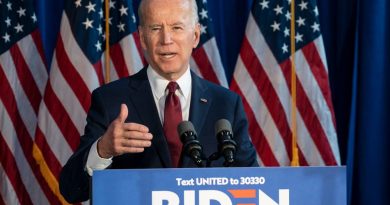Texas House Passes Bill to Expand Medical Marijuana Access
It’s a small step when you consider what is happening in the rest of the nation. But the citizens of Texas – the second largest and one of the most conservative states in the country – may soon have increased access to marijuana in Texas.
The new bill, House Bill 1535, expands the medical marijuana program to include everyone with cancer. It also would include people with chronic pain and debilitating medical conditions. Just before passage, House members amended the bill to also include those who suffer from post-traumatic stress disorder (PTSD). Previously, the bill only covered veterans with PTSD.
In addition to the expansion of eligibility, the bill also would allow for higher doses of THC for medical marijuana in Texas. Currently, it’s only 0.5%, almost as low as the amount the federal government allows for CBD products sold nationwide (0.3%).
Republican Lawmaker Drove Changes
Rep. Stephanie Klick, a Republican from Fort Worth, led the drive to amend the existing medical marijuana laws. Klick, a registered nurse, also wrote the 2015 bill that established the Lone Star State’s medical marijuana program.
The origin law allows medical marijuana use for people with terminal cancer, intractable epilepsy, seizure disorders, multiple sclerosis, spasticity, amyotrophic lateral sclerosis, autism or an incurable neurodegenerative disease. The new law includes all cancer patients, as well as those suffering from chronic pain (one of the main reasons people use medical marijuana) and PTSD.
Klick provided clear reasons why the state needs to expand the medical marijuana laws. For example, she said, PTSD needed inclusion, and not just for veterans. “We need to include [survivors] in that sexual assault is more likely to cause PTSD than any other event,” Klick told KXAN Austin.
Why People Are Paying Attention to Texas
The proposed changes in Texas law, which still must pass the Senate and get signed by Gov. Greg Abbott, seem small when compared to what is happening in so many parts of the country. But it’s seen as a possible harbinger for what could occur across the rest of The South, eventually.
Texas, with the second largest population in the country, is seen as a leader on policy to some extent in the South. No state in the region has legalized recreational marijuana, but most have some type of medical marijuana program, although often restricted to a handful of specific conditions.
The law change governing marijuana in Texas also would increase the level of THC allowed in medical marijuana from 0.5% to 5%. The current amount is so low the marijuana advocacy organization NORML refers to the current Texas program as a “medical CBD” program.
The low amount of THC may also help account for the low participation rates in the Texas medical marijuana program. Although experts think about two million people are eligible for the program, only 3,500 people are currently enrolled, according to the Texas Tribune.
“There’s an incredibly restrictive cap on THC,” Heather Fazio, director of Texans for Responsible Marijuana Policy, told the Tribune. “Low levels of THC will work for some people, but it doesn’t work for others. And so, what we think is that doctors need to be the ones making these decisions, not lawmakers.”




